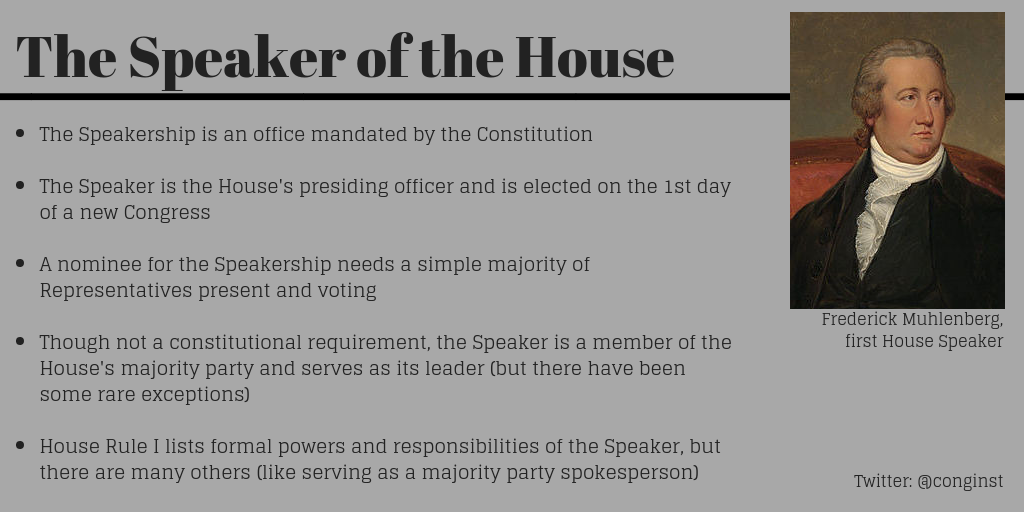- Joined
- Jan 25, 2012
- Messages
- 11,047
- Reaction score
- 2,139
- Points
- 113
- Location
- Ottawa, Ontario, Canada
Perhaps someone can help me with a bit of a mystery.
The procedure for choosing the Speaker of the House of Representatives looks much the same as the procedure used in Canada to select a candidate or party leader.
Nominees are voted upon by delegates. After the votes are counted, the nominee with the least votes is eliminated. Typically, he will ask his supporters to support another candidate. Then, another ballot is cast with the remaining candidates, and the procedure is repeated until a nominee receives a majority of the votes and is declared the winner. Usually this takes a few ballots--typically around three or four.
How does the system for electing the speaker differ? There were seven candidates on the first ballot, which suggests to me that the election should have taken six ballots max--not fifteen over several days, which seems to me farcical.
Why is it that your elections always seem so inefficient compared to ours? The U.S. is roughly twice the age of Canada, meaning you've had an extra century or so to streamline things.
The procedure for choosing the Speaker of the House of Representatives looks much the same as the procedure used in Canada to select a candidate or party leader.
Nominees are voted upon by delegates. After the votes are counted, the nominee with the least votes is eliminated. Typically, he will ask his supporters to support another candidate. Then, another ballot is cast with the remaining candidates, and the procedure is repeated until a nominee receives a majority of the votes and is declared the winner. Usually this takes a few ballots--typically around three or four.
How does the system for electing the speaker differ? There were seven candidates on the first ballot, which suggests to me that the election should have taken six ballots max--not fifteen over several days, which seems to me farcical.
Why is it that your elections always seem so inefficient compared to ours? The U.S. is roughly twice the age of Canada, meaning you've had an extra century or so to streamline things.



